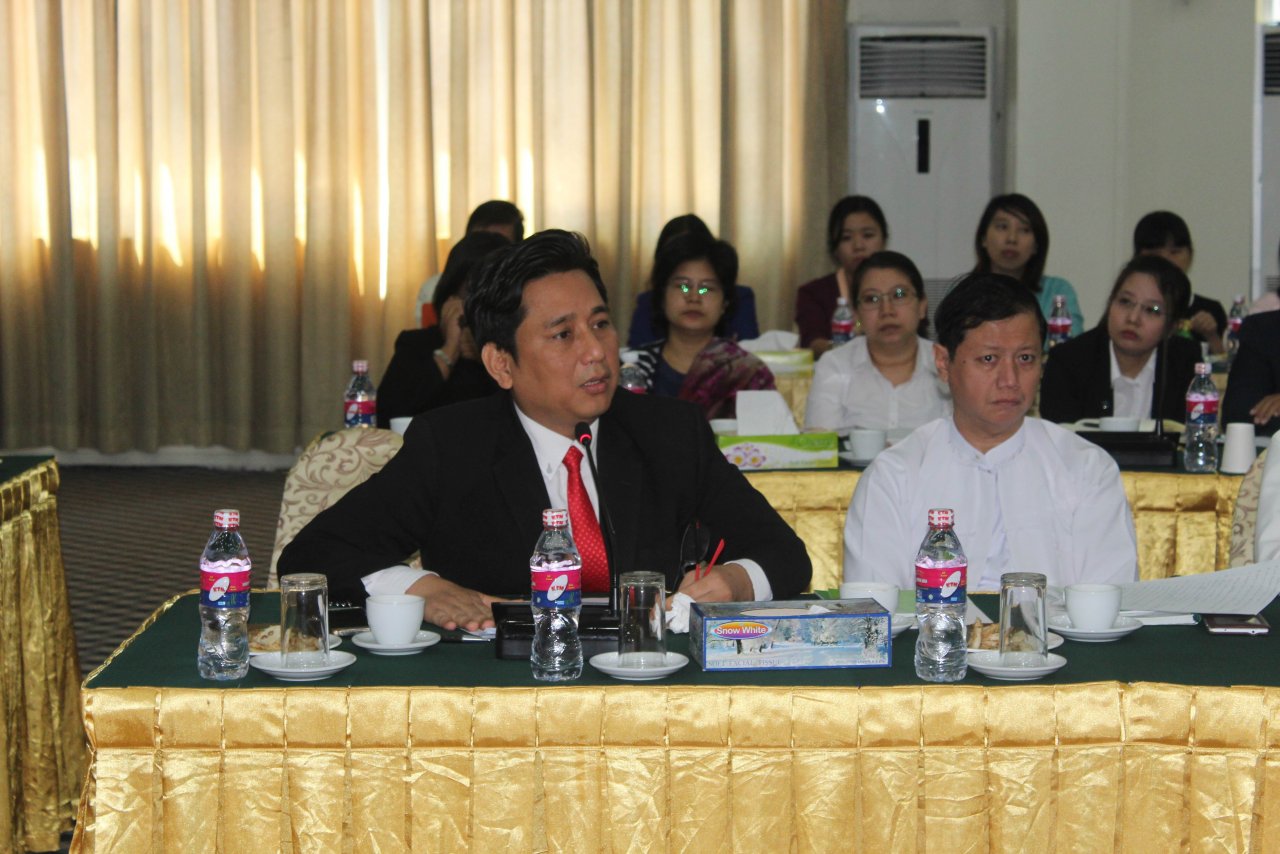Thailand: Businesses help shape new tax law
MORE THAN 150 executives from different companies on Thursday gathered at the Union of Myanmar Federation of Chamber of Commerce and Industry (UMFCCI) office to provide inputs on the Union Tax Law, which would soon be enacted.
The event, entitled “CFO Conference”, led to fruitful discussions and a paper based on the participants’ suggestions would be submitted to authorities concerned, according to Ye Min Aung, vice president of UMFCCI and managing director of Myanmar Agribusiness Public Corporation, who leads the organisation’s tax working group.
“We decided to work closely with the government and the legislature in order to reflect the private sector’s perspectives on tax laws. We need to raise awareness of taxation and ensure responsible businesses that pay taxes,” he said.
He said the taxpayers’ base should be expanded while tax rates should not be increased. He added that private firms had decided to work closely with the Inland Revenue Department to raise their awareness on taxation.
He urged simplification of tax procedures and processes through use of modern ICT (information and communication technology) infrastructure, and called for revision of the Income Tax, Commercial Tax, and Special Goods Tax laws.
“In order to encourage everyone to regularly pay the taxes, we need to make our tax laws easier to understand, more practical and clearer,” he said.
Ye Min Aung added that taxation policies and practices should enable a conducive business ecosystem as expected by the private sector and foreign investors.
At the conference, participants provided suggestions to the government and the legislature with regards to the Draft Union Tax Law for fiscal year 2018-19. They urged the government and parliament to reduce corporate income tax.
“One of the fundamental policies of UMFCCI is to expand the tax base and reduce the tax rate. Globally, the United States recently announced its greatest tax reforms in history, which should set a good example for Myanmar. Currently, our corporate income tax is 25 per cent, which is higher than that of many other Asean nations,” he said.
Reduced buden sought
He added that many companies wanted corporate income tax to be reduced to 20 per cent, as the rate ranged from 15 to 21 per cent in other Asean nations.
“As a representative of private companies, UMFCCI decided to submit such a suggestion to the government so it would be more effective than individually raising this issue. We are willing to ensure a level-playing field for all companies. In this regard, we need to control those who are trying to avoid taxes through proper law enforcement,” he said.
Currently, Myanmar allows companies listed on the Yangon Stock Exchange (YSX) to pay 20 per cent corporate income tax while other businesses have to pay 25 per cent, which many companies consider “unfair”. The measure is part of the government’s efforts to encourage more companies to list on YSX.
To date, only four companies – First Myanmar Investment Co, Myanmar Thilawa SEZ Holdings, Myanmar Citizens Bank, First Private Bank – have listed on the YSX, while TMH Telecom Public Co has been approved by the securities regulator to get listed soon.
“Generally, listed companies are bigger than other businesses. If they have to pay only 20 per cent, the same tax rate should be applied to smaller businesses. The government needs to encourage small and medium enterprises to develop further,” said Moe Kyaw, managing director of Myanmar Marketing Research and Development Co.
Aung Moe Kyaw, group chairman of International Beverages Trading Co, shared a similar view. He said reducing corporate income tax would not only enhance the competitiveness of local businesses but also attract more foreign firms to do business in Myanmar.
Source: http://www.nationmultimedia.com/detail/Economy/30334587


 English
English




